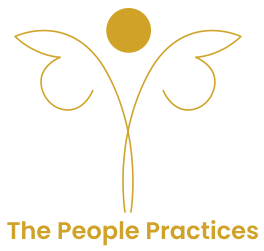Why Diversity Matters
In today’s globalized world, workplace diversity is more than just a buzzword; it’s a necessity for success. Have you ever considered how a diverse team can enhance creativity and drive innovation? Research shows that diverse teams can outperform their peers, offering unique perspectives and ideas. As an HR professional, understanding the benefits of workplace diversity can help you foster an inclusive environment that not only attracts top talent but also drives organizational success. In this blog, we’ll explore the multifaceted advantages of workplace diversity and how it can transform your organization.
The Benefits of Workplace Diversity
Diversity in the workplace encompasses differences in race, ethnicity, gender, age, sexual orientation, and more. This rich variety leads to numerous benefits for organizations, including:
Enhanced Creativity and Innovation
Diverse teams bring together individuals with different backgrounds, experiences, and viewpoints. This diversity can spark creativity and drive innovation in several ways:
- Diverse Perspectives: Team members from varied backgrounds can approach problems from unique angles, leading to innovative solutions. For example, a product development team comprising individuals from different cultures might create a product that appeals to a broader audience.
- Increased Idea Generation: Research by the Harvard Business Review indicates that diverse teams are 35% more likely to outperform homogeneous teams in creativity. When diverse minds collaborate, the synergy can lead to breakthrough ideas.
Example: Companies like Google and Apple have actively embraced diversity in their teams, resulting in products that resonate with a global audience and meet the needs of diverse consumers.
Improved Employee Performance and Productivity
Workplace diversity can also lead to enhanced employee performance and productivity. Employees who feel valued for their unique contributions are more motivated and engaged. This can be achieved through:
- Inclusive Work Environment: Organizations that prioritize diversity and inclusion create a sense of belonging among employees. This can lead to higher job satisfaction and increased productivity.
- Retention of Top Talent: A diverse workplace attracts a wider talent pool, allowing organizations to hire individuals with the best skills and qualifications. Companies with diverse leadership teams report 19% higher revenue due to improved employee performance.
Stat: A McKinsey report found that organizations with diverse executive teams are 21% more likely to experience above-average profitability.
Greater Employee Engagement and Retention
Engaged employees are more likely to stay with their organizations, reducing turnover rates and associated recruitment costs. Here’s how diversity fosters engagement:
- Empowerment Through Representation: When employees see themselves represented in leadership roles, it fosters a sense of empowerment and belonging. This can enhance overall morale and encourage employees to contribute more actively to their teams.
- Creating a Supportive Culture: An inclusive culture encourages open dialogue, collaboration, and mutual respect, leading to higher levels of employee engagement.
Example: Companies like Johnson & Johnson have implemented mentorship programs that connect employees from diverse backgrounds with leaders, promoting engagement and career advancement.
Better Decision-Making
Diversity can significantly enhance decision-making processes within organizations. Teams that are diverse are more likely to:
- Avoid Groupthink: A homogeneous team may fall into the trap of groupthink, where the desire for harmony leads to poor decision-making. Diverse teams challenge each other’s viewpoints, resulting in more robust discussions and better outcomes.
- Consider Multiple Solutions: Teams with diverse members are more likely to explore a range of solutions to problems, considering various perspectives before making decisions.
Stat: According to research from Cloverpop, diverse teams make better business decisions 87% of the time.
Positive Company Reputation
Embracing workplace diversity can also positively impact an organization’s reputation, both internally and externally. Here’s how:
- Attracting Customers: A diverse workforce can better understand and connect with a varied customer base, leading to improved customer satisfaction and loyalty.
- Enhanced Brand Image: Companies that are recognized for their commitment to diversity are often viewed more favorably by consumers, which can lead to increased market share.
Example: Companies like Starbucks have made diversity and inclusion a core part of their brand identity, enhancing their reputation and customer loyalty.
Strategies to Foster Workplace Diversity
To reap the benefits of workplace diversity, organizations can implement several strategies:
- Develop Inclusive Policies: Ensure that hiring, promotion, and retention policies actively promote diversity and inclusion.
- Provide Diversity Training: Offer training programs that educate employees about the importance of diversity and foster an inclusive culture.
- Encourage Employee Resource Groups: Establish employee resource groups (ERGs) that allow employees from similar backgrounds to connect, share experiences, and advocate for their needs.
- Set Measurable Diversity Goals: Establish clear diversity goals and regularly measure progress to ensure accountability.
- Promote Flexible Work Arrangements: Offer flexible work options that accommodate diverse employee needs and promote work-life balance.
Case Studies: Successful Diversity Initiatives
Case Study 1: Accenture
Accenture has made diversity a top priority, implementing initiatives that promote gender equality and inclusion for LGBTQ+ employees. Their commitment to diversity has led to increased employee engagement and innovation, contributing to their success as a global consulting firm.
Case Study 2: Coca-Cola
Coca-Cola’s diversity initiatives focus on building an inclusive workplace that reflects the communities they serve. By promoting diverse leadership and fostering an inclusive culture, Coca-Cola has enhanced employee satisfaction and brand loyalty among consumers.
FAQs
What is workplace diversity?
Workplace diversity refers to the variety of differences among employees, including race, gender, age, sexual orientation, and more.
Why is diversity important in the workplace?
Diversity is essential because it fosters creativity, improves employee performance, enhances decision-making, and promotes a positive company reputation.
How can organizations promote diversity?
Organizations can promote diversity by developing inclusive policies, providing diversity training, establishing employee resource groups, and setting measurable diversity goals.
What are the benefits of a diverse workforce?
A diverse workforce leads to enhanced creativity, improved employee performance, greater engagement, better decision-making, and a positive company reputation.
How can I measure diversity in my organization?
Organizations can measure diversity by tracking demographic data, assessing employee satisfaction through surveys, and evaluating the effectiveness of diversity initiatives.
Conclusion: Embracing Diversity for a Better Workplace
The benefits of workplace diversity extend far beyond simply meeting compliance requirements or creating a more inclusive environment; they drive innovation, enhance performance, and contribute to a positive company culture. By embracing diversity and implementing strategies that foster an inclusive workplace, organizations can unlock the full potential of their teams. As HR professionals, it is our responsibility to champion diversity and create a workplace where every employee feels valued, empowered, and engaged. Let’s continue to build diverse teams that reflect the world around us and drive our organizations toward success.



